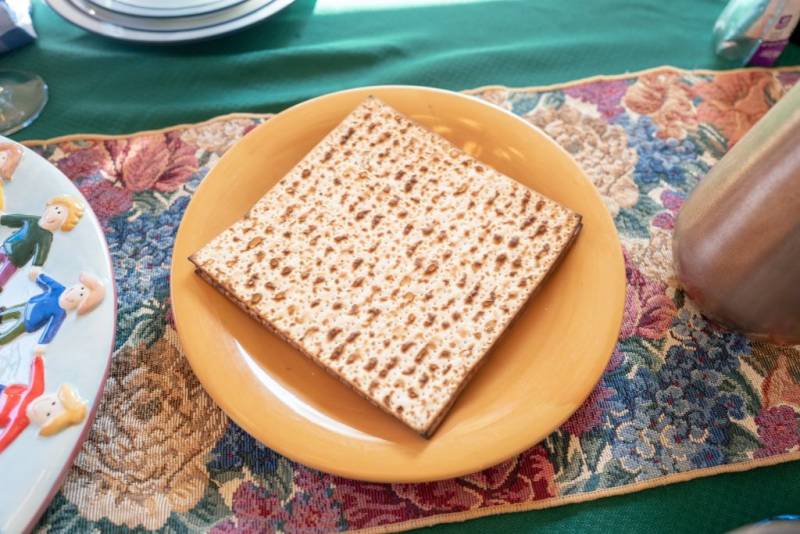“There are political and generational differences in my own family. And I’m listening to a lot of people in the Jewish community where families are riven with conflict,” she told KQED last fall.
“I’ve heard several cases in which parents and adult children are not speaking to one another, and that’s incredibly sad. But it is possible to love people and disagree, and to talk and to listen, and to feel our pain.”
How to navigate potentially incendiary discourse at family gatherings isn’t new. For more insight from one of the many Jewish people getting ready for the Seder, KQED’s Adhiti Bandlamudi spoke to Hilary Elfman, director of a rabbinical office in San Francisco.
This conversation has been edited for brevity and clarity.
ADHITI BANDLAMUDI: Passover tells the story about the ancient Hebrews’ enslavement and liberation in Egypt. How do you think about this tradition in light of the latest geopolitics?
HILARY ELFMAN: Being in conflict and at war is nothing new for the Jewish people. And it’s highlighted in the story of Passover. It really lends itself to have opportunities to have discussions. Seder this year is a little bit commensurate with what someone might feel when they are apprehensive or anticipating Thanksgiving with family members that might hear differing political views. And it’s very possible that there’s going to be pressure on people to kind of shake things up a bit.
How do you approach that? I mean, this is a particularly emotional topic right now.
I think for this year, people need to find what’s right for them. For some tables, it might be casual, allowing for different topics to come up organically. And for some, they might have questions prepared to specifically address this conflict, war, from Oct. 7.
Do you expect people at your table to get into current events?
So one of the beautiful things about Passover is the variety of ages and opinions and views and biases that can be around the table. Historically, my Passover Seders have been peaceful. And so what I would want people to think is that people have a choice to stick to the ritual, or people have a choice to integrate some of the traditions and rituals into modernity — whether they want the Seder to be more political and have a lot of discourse and dialogue, or people can choose to stick with rituals that have been done for thousands of years.
I wonder if you could tell me a little bit more about the traditions that surround Seder, and also of the symbols on the Seder plate?
It’s become a bit customary these days that people will add additional items to their Seder plate, and they act as symbols. I’ve heard this year that some people are putting an olive branch, which is native to the entire region where the conflict is going on and a symbol for peace.
What’s going to be on your plate this year?
I thought of the idea to put a key on my plate, which represents freedom for all. People are being held hostage in both Gaza and in Israel. It’s a sign of optimism.
What would you tell people who are nervous about joining loved ones for Passover this year? What advice would you give them?
There’s an opportunity to share and speak from the heart. Some people are speaking because they just want to be heard, or they want to be right, or they want to be validated. Maybe even stir the pot a little bit. And the way that I believe could be effective communication is perhaps just listening and actually hearing them out.
There’s something at the end of each Seder that people often say, which is “next year in Jerusalem.” So I was reflecting for this year, that will be taken both very figuratively and literally.
